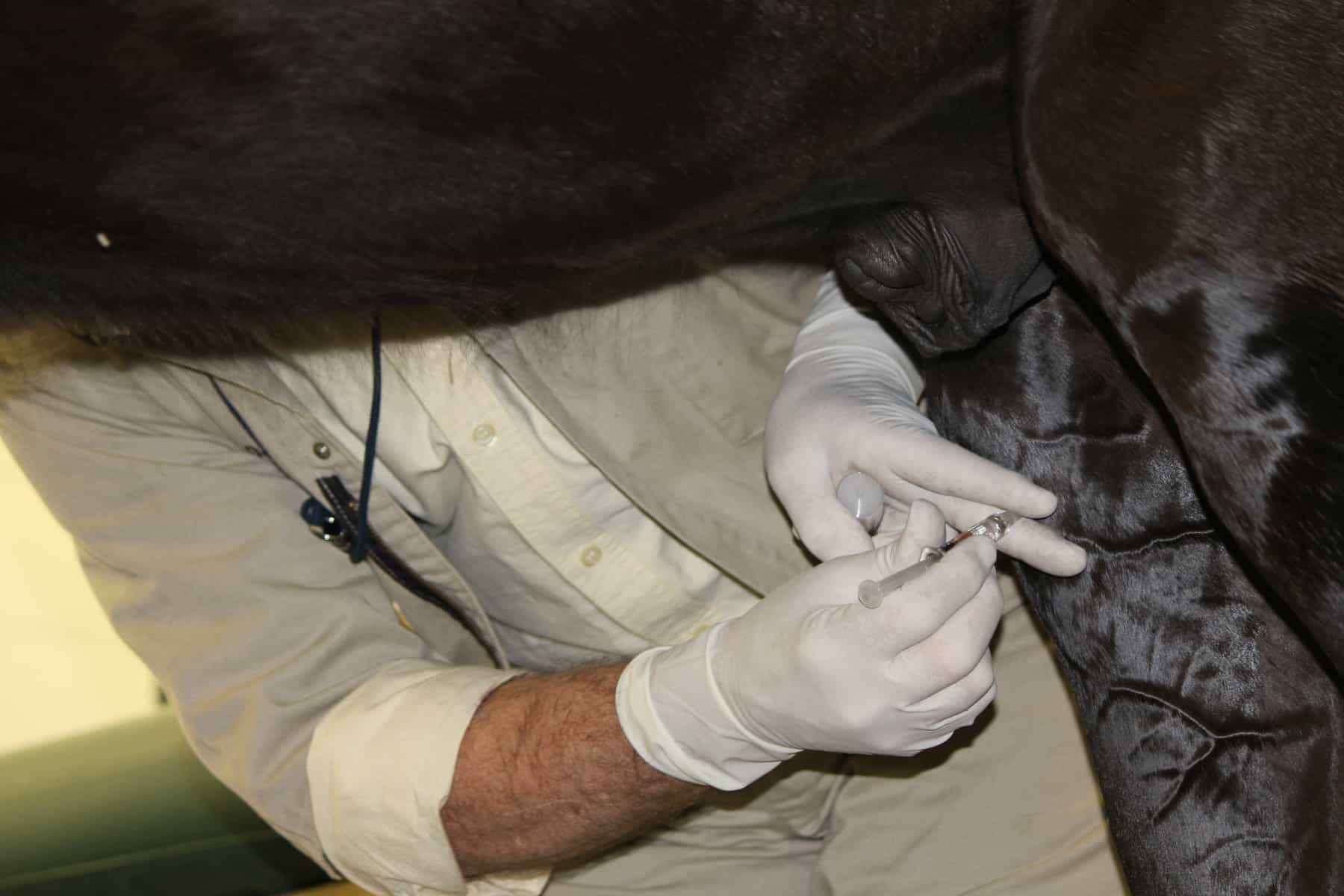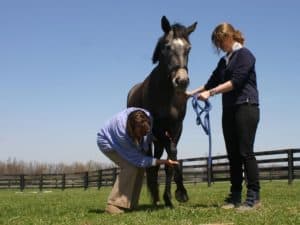Joint Injections Might Delay Developing Fracture Detection in Racehorses

Injecting anti-inflammatories into racehorses’ joints might help them perform to the best of their abilities. But they might also delay detection of serious issues that could worsen if the horse continues to train and race, British researchers have learned. There’s a non-negligible risk of fracture of the treated joint shortly after treatment, their recent study revealed.
“Trainers should be aware that intra-articular (in the joint) medications are a tool with potentially many benefits, but also we need to be careful about selecting the cases receive this treatment,” said Lewis C. R. Smith, BVetMed, CertES(Orth), DESTS, Dipl. ECVS, FRCVS, RCVS, and European Specialist in Equine Surgery, at Rossdales Equine Hospital, in Newmarket, U.K.
Smith and colleagues reviewed the records from all 1,488 flat-racing Thoroughbreds that had received intrasynovial (within a joint, bursa, or tendon sheath) medication by their primary veterinarian in Newmarket from 2006 to 2011. They categorized any fractures, before or up to 56 days after treatment, by location, type, and severity
Create a free account with TheHorse.com to view this content.
TheHorse.com is home to thousands of free articles about horse health care. In order to access some of our exclusive free content, you must be signed into TheHorse.com.
Start your free account today!
Already have an account?
and continue reading.

Written by:
Christa Lesté-Lasserre, MA
Related Articles
Stay on top of the most recent Horse Health news with











